☀️ @PunchbowlNews AM: Problem Solvers Caucus grows
One of the trends we’ve noticed in this Congress is that middle-of-the-road caucuses are getting larger and attempting to grab more power.
More from Jake Sherman
More from Politics
39.1% of Democrats think that it's wrong to negatively stereotype people based on their place of birth... AND that Southerners are more racist. https://t.co/yp1hviLuBB
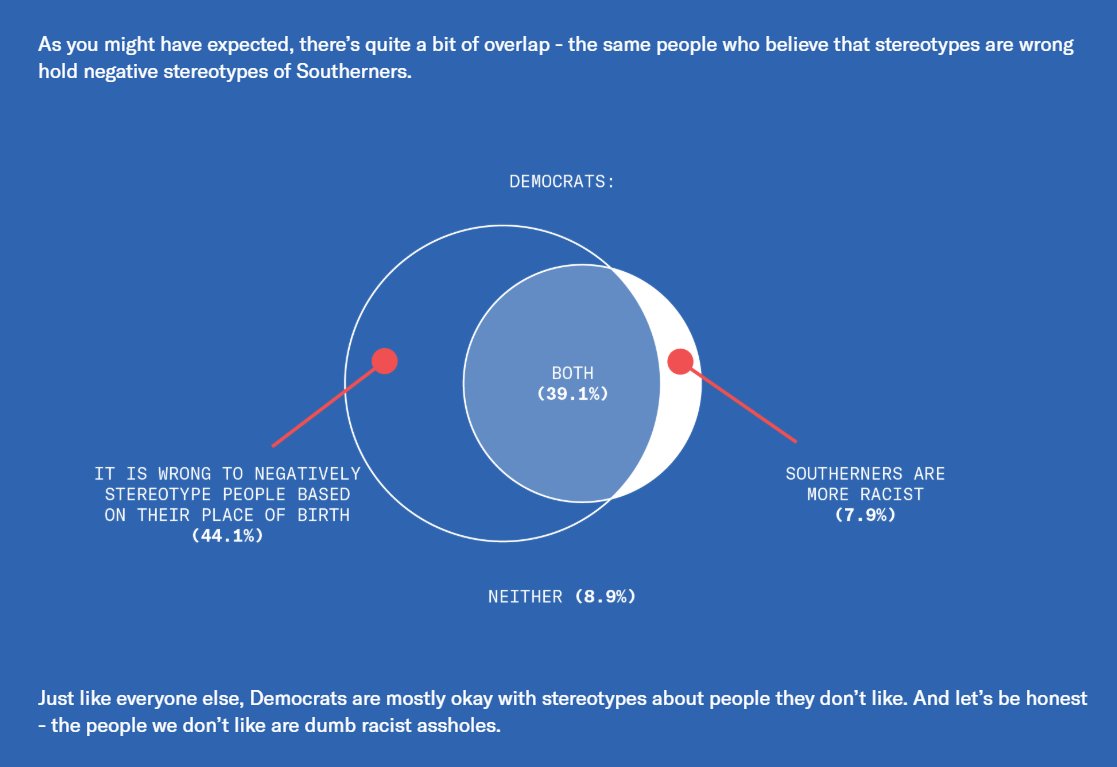
65.2% of Republicans think that people shouldn't be so easily offended... AND that Black Lives Matter is offensive. https://t.co/znmVhqIaL8
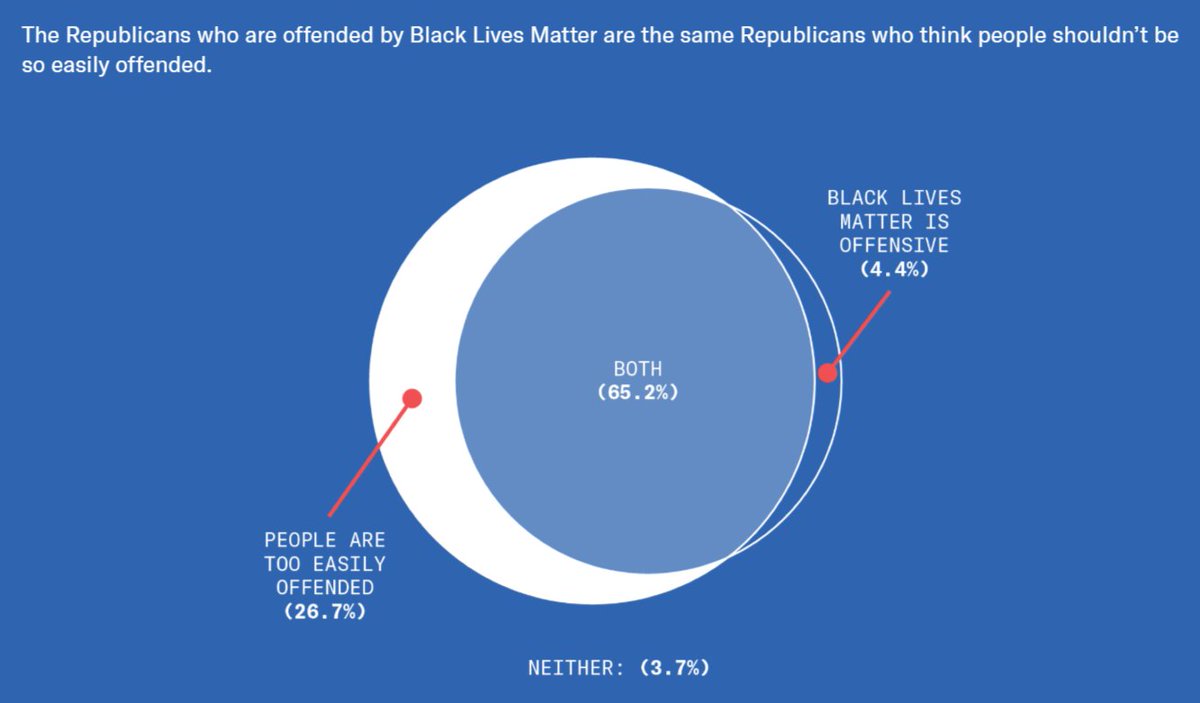
64.6% of Democrats think that a woman has the right to do what she wants with her body... AND that selling organs should be illegal.
48.5% of Democrats think that a woman has the right to do what she wants with her body... AND that prostitution should be illegal.
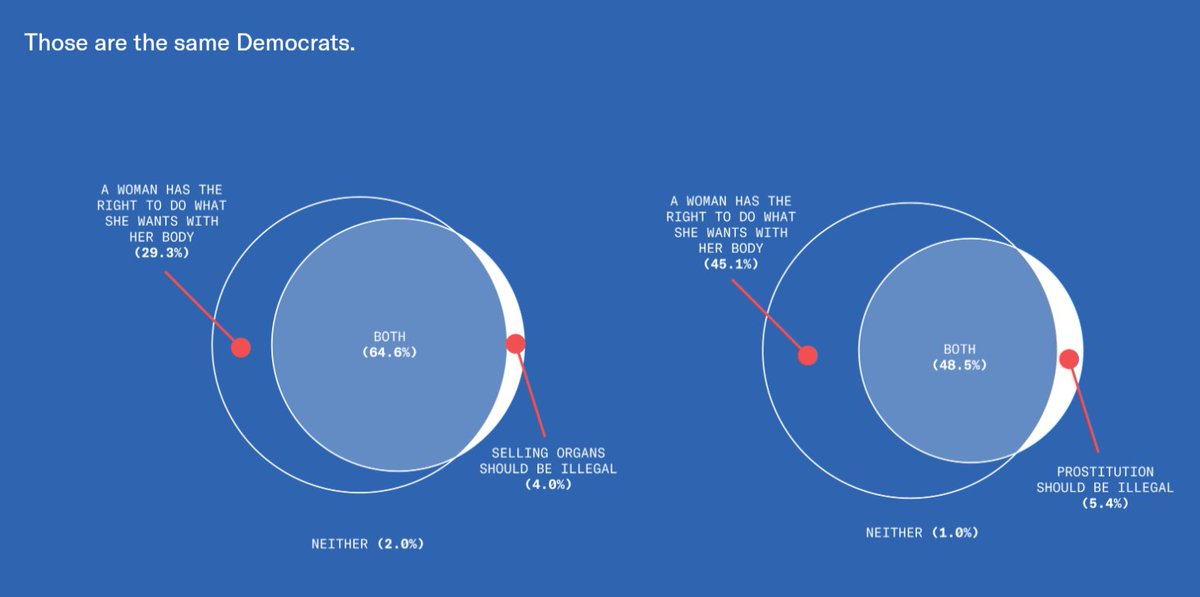
57.9% of Republicans think that people should be free to express their opinions in the workplace... AND that athletes should not be allowed to sit or kneel during the national anthem. https://t.co/ds2ig1NJFr
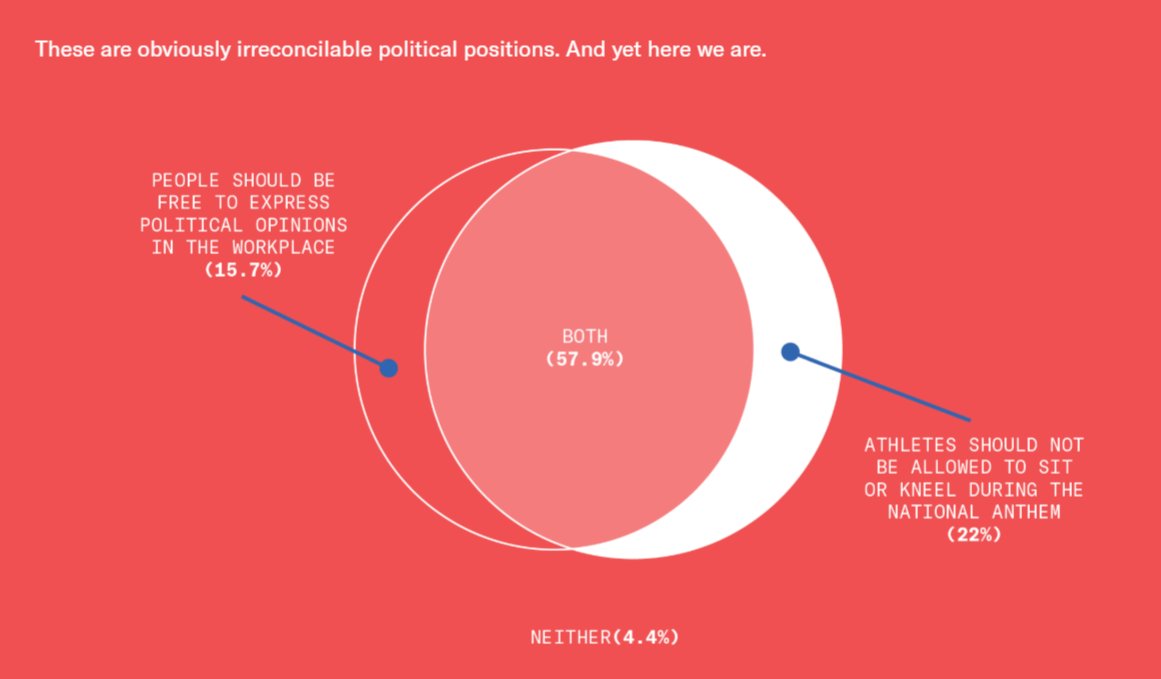
Democrats: Men and women are equal in their talents and abilities. Also, women are superior. https://t.co/bEFSmqQguo
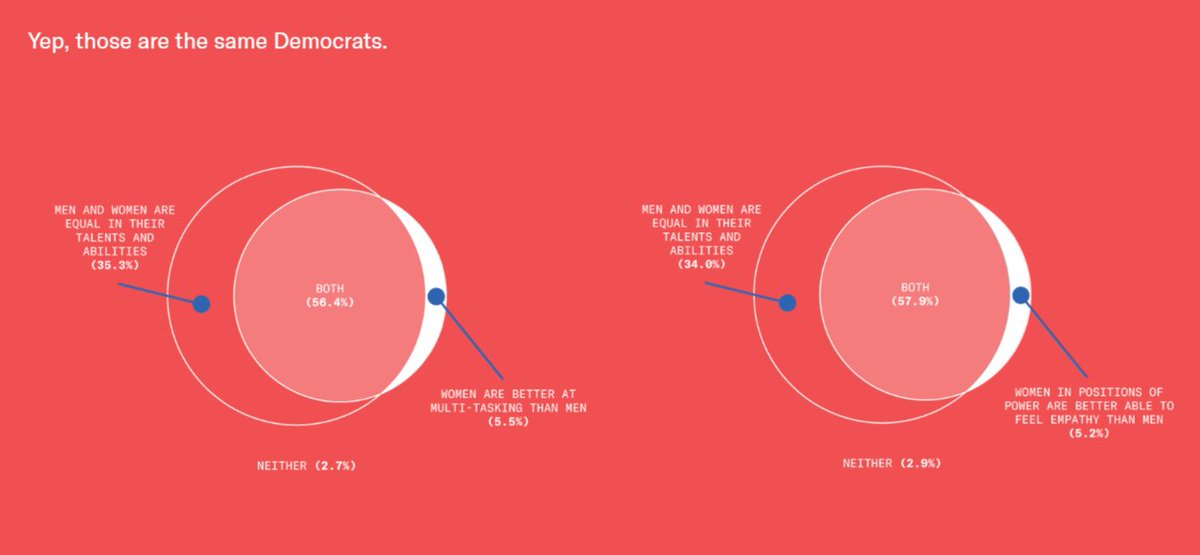

65.2% of Republicans think that people shouldn't be so easily offended... AND that Black Lives Matter is offensive. https://t.co/znmVhqIaL8

64.6% of Democrats think that a woman has the right to do what she wants with her body... AND that selling organs should be illegal.
48.5% of Democrats think that a woman has the right to do what she wants with her body... AND that prostitution should be illegal.

57.9% of Republicans think that people should be free to express their opinions in the workplace... AND that athletes should not be allowed to sit or kneel during the national anthem. https://t.co/ds2ig1NJFr

Democrats: Men and women are equal in their talents and abilities. Also, women are superior. https://t.co/bEFSmqQguo

I told you they’d bring this up
I was wondering why that tweet had so many stupid replies. And now I see
Seriously, this was “the night before.” If you’re at the march where they’re changing “Jews will not replace us” and “Blood and soil,” you’re not a “very fine person.” Full stop.
There are 3 important moments in that transcript.
1.) When someone asked Trump about a statement *he had already made* about there being blame on “both sides,” he said the “fine people” line.

2. Trump does clarify! “I’m not talking about the neo-Nazis and white nationalists — because they should be condemned totally “
Okay!
Then adds that there were “many people in that group other than neo-Nazis and white nationalists.”

Right-wing media have essentially convinced themselves that Trump never said "very fine people." They're lying. https://t.co/5960NPMYLJ
— Parker Molloy (@ParkerMolloy) February 11, 2021
I was wondering why that tweet had so many stupid replies. And now I see
The Fine People Hoaxers are trying hard to keep you from reading the actual FULL transcript because then you would see how the hoax was pulled off with devious editing. https://t.co/PQLj0DWuPj
— Scott Adams (@ScottAdamsSays) February 11, 2021
Seriously, this was “the night before.” If you’re at the march where they’re changing “Jews will not replace us” and “Blood and soil,” you’re not a “very fine person.” Full stop.
Trump defense talking about how the then-president was praising the peaceful protests at Charlottesville that occurred "the night before" the violence on Saturday. That was the night where the torch-bearing crowd chanted "Jews will not replace us." pic.twitter.com/HCKS6Q9LBY
— Anthony Zurcher (@awzurcher) February 12, 2021
There are 3 important moments in that transcript.
1.) When someone asked Trump about a statement *he had already made* about there being blame on “both sides,” he said the “fine people” line.

2. Trump does clarify! “I’m not talking about the neo-Nazis and white nationalists — because they should be condemned totally “
Okay!
Then adds that there were “many people in that group other than neo-Nazis and white nationalists.”

You May Also Like
Joshua Hawley, Missouri's Junior Senator, is an autocrat in waiting.
His arrogance and ambition prohibit any allegiance to morality or character.
Thus far, his plan to seize the presidency has fallen into place.
An explanation in photographs.
🧵
Joshua grew up in the next town over from mine, in Lexington, Missouri. A a teenager he wrote a column for the local paper, where he perfected his political condescension.
2/

By the time he reached high-school, however, he attended an elite private high-school 60 miles away in Kansas City.
This is a piece of his history he works to erase as he builds up his counterfeit image as a rural farm boy from a small town who grew up farming.
3/

After graduating from Rockhurst High School, he attended Stanford University where he wrote for the Stanford Review--a libertarian publication founded by Peter Thiel..
4/
(Full Link: https://t.co/zixs1HazLk)
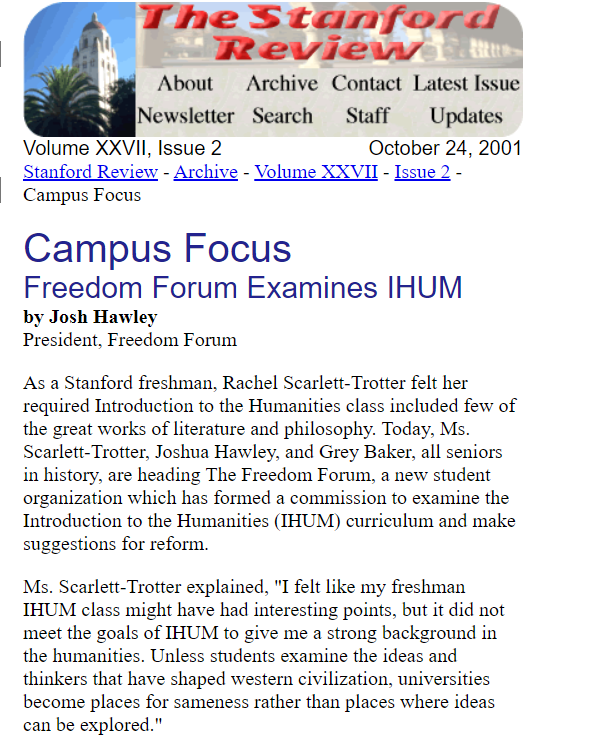
Hawley's writing during his early 20s reveals that he wished for the curriculum at Stanford and other "liberal institutions" to change and to incorporate more conservative moral values.
This led him to create the "Freedom Forum."
5/

His arrogance and ambition prohibit any allegiance to morality or character.
Thus far, his plan to seize the presidency has fallen into place.
An explanation in photographs.
🧵
Joshua grew up in the next town over from mine, in Lexington, Missouri. A a teenager he wrote a column for the local paper, where he perfected his political condescension.
2/

By the time he reached high-school, however, he attended an elite private high-school 60 miles away in Kansas City.
This is a piece of his history he works to erase as he builds up his counterfeit image as a rural farm boy from a small town who grew up farming.
3/

After graduating from Rockhurst High School, he attended Stanford University where he wrote for the Stanford Review--a libertarian publication founded by Peter Thiel..
4/
(Full Link: https://t.co/zixs1HazLk)

Hawley's writing during his early 20s reveals that he wished for the curriculum at Stanford and other "liberal institutions" to change and to incorporate more conservative moral values.
This led him to create the "Freedom Forum."
5/
















